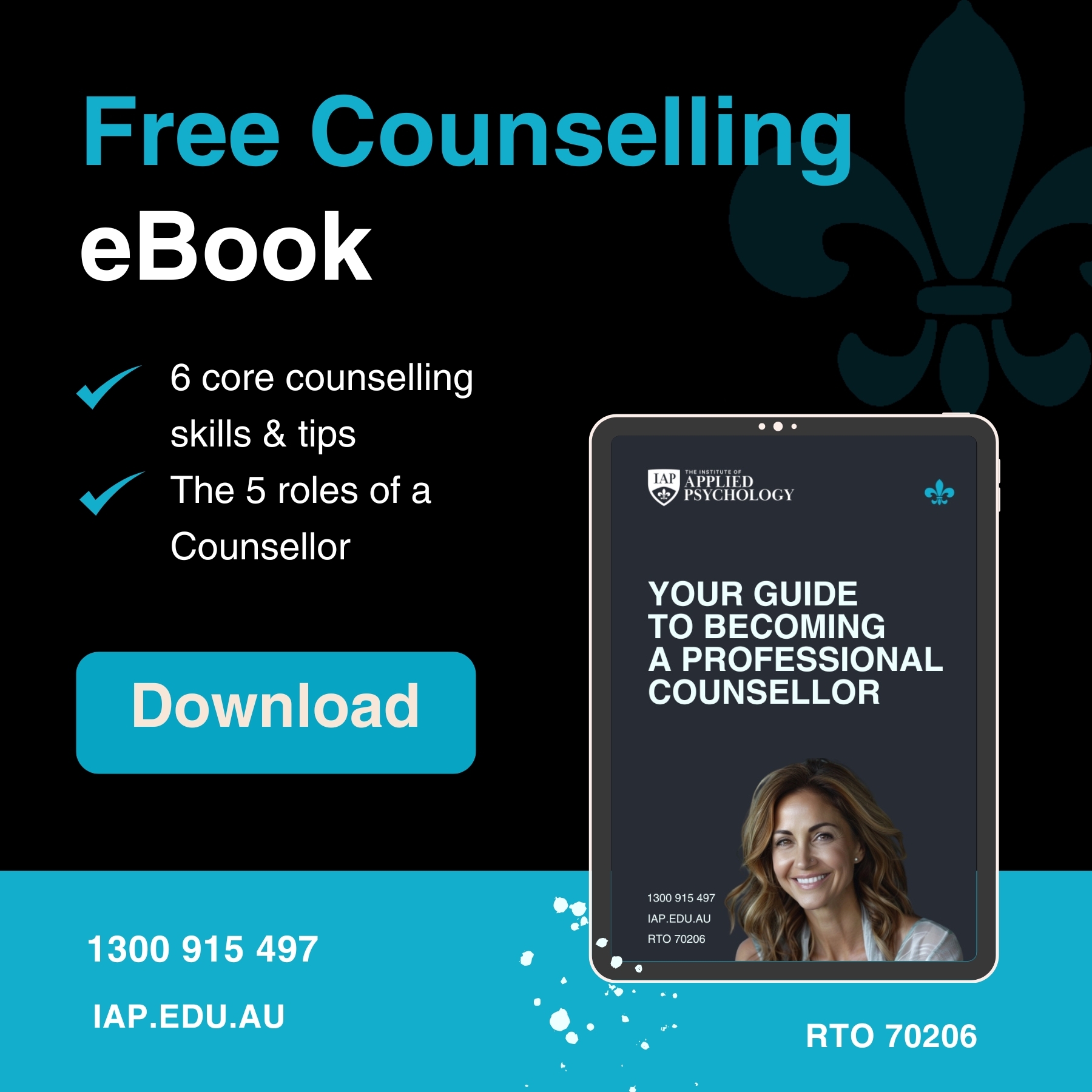7 Top Reasons to Become a Counsellor
Embarking on a career as a counsellor is a deeply rewarding and impactful path for those who possess a genuine desire to help others. Counsellors are crucial in supporting individuals, couples, families, and communities as they navigate challenging life situations.
Below we will explore why people consider becoming counsellors, the essential qualities required for success in this field, and the professional standards guiding their practice. Whether you are contemplating a career change or have a passion for supporting others, this guide will provide valuable insights into the world of counselling.
7 Compelling Reasons to Considering Becoming a Counsellor
- Making a Meaningful Difference: Imagine witnessing a client who has been battling anxiety for years finally find relief and regain control over their lives with the support of counselling. Being able to impact someone’s well-being and witness their transformation positively is an incredibly fulfilling experience.
- Passion for Helping Others: From a young age, you may have been the person friends and family turned to for advice and support. Becoming a counsellor allows you to channel this innate desire to help others into a professional career where you can profoundly impact people’s lives.
- Personal Growth and Self-Reflection: Counselling training and practice require deep self-reflection and personal growth. As a counsellor, you have the opportunity to embark on your own journey of self-discovery and enhance your understanding of human behaviour, emotions, and relationships.
- Advocacy and Social Change: Counsellors often work with marginalized populations, advocating for their rights and well-being. By addressing societal issues and promoting social change, counsellors contribute to building a more inclusive and equitable world.
- Lifelong Learning and Growth: Counselling is a field that continuously evolves, with new research and therapeutic techniques emerging. As a counsellor, you engage in ongoing professional development, attending workshops, conferences, and training programs to expand your knowledge and refine your skills.
- Join a growing industry: According to Labour Marketing Insights, the employment outlook for counsellors is projected to increase by 14.2% by the year 2026.
- Work in rewarding industries where you can help people: The top two industries include Health Care & social assistance and Education & Training.
5 Essential Qualities Every Successful Counsellor Needs
- Empathy and Compassion: A counsellor with empathy and compassion can create a safe and non-judgmental space where clients feel heard, understood, and validated. This quality allows clients to open up, explore their emotions, and work towards healing.
- Active Listening: Active listening involves giving full attention to clients verbally and non-verbally. By demonstrating attentive listening skills, counsellors can better understand their client’s concerns, facilitating effective therapeutic interventions.
- Emotional Resilience: Counseling often involves working with individuals experiencing emotional distress, trauma, or challenging life situations. Emotional resilience enables counsellors to maintain their well-being while supporting clients during difficult times.
- Cultural Sensitivity and Awareness: Counsellors encounter clients from diverse cultural backgrounds, and it is crucial to respect and understand their unique experiences, beliefs, and values. A counsellor who embraces cultural sensitivity fosters an inclusive environment and ensures effective communication and treatment.
- Boundaries and Ethical Practice: Upholding professional boundaries and ethical guidelines is essential for maintaining trust and ensuring the well-being of clients. A counsellor who adheres to ethical standards protects client confidentiality, maintains professional competence, and avoids conflicts of interest.
The Personal Advantages of Studying Counselling: Growth, Communication, and Insight
Studying counselling can also provide a wide range of personal benefits for individuals who are interested in pursuing this field.
It can enhance one’s ability to communicate effectively and empathetically with others, leading to better interpersonal relationships and more meaningful connections.
- Through the study of counselling, individuals can also develop greater self-awareness and insight into their own emotions, thoughts, and behaviours, leading to personal growth and improved mental health.
- Additionally, the skills and knowledge gained through counselling studies can be applied to various aspects of life, such as parenting, teaching, and leadership, making it a valuable asset in both personal and professional settings.
Navigating Professional Standards and Counselling Associations in Australia
Counsellors are guided by professional standards that uphold the integrity and effectiveness of their practice. These standards are established by various organizations, accrediting bodies, and regulatory agencies within the field of counselling.
In Australia, professionals can join several common counselling associations to enhance their skills, stay updated with industry advancements, and connect with a community of fellow counsellors. Here are some prominent counselling associations in Australia:
- Australian Counselling Association (ACA): The ACA is one of the largest counselling associations in Australia, representing professional counsellors and psychotherapists. It sets high standards for ethical practice, provides professional development opportunities, and advocates for the recognition of counselling as a distinct profession. If you study the CHC51015 Diploma of Counselling with us at IAP, you are able to join the ACA as a full level 1 member of ACA and register as a practicing counsellor.
- Certified Practicing Counsellors Australia: Certified Practicing Counsellors Australia (CPCA) is a professional association for counsellors and psychotherapists in Australia. It is a not-for-profit organization that aims to promote the advancement of the profession and the well-being of the community through the provision of high-quality, ethical, and effective counselling services. The CPCA sets counsellor education and training standards, ethical practice, and ongoing professional development. It also provides members with a range of membership benefits and support services, including access to resources, networking opportunities, and professional development events.
- Psychotherapy and Counselling Federation of Australia (PACFA): PACFA is a national peak body that represents the interests of counsellors, psychotherapists, and organizations in Australia. It provides professional support, accreditation, and resources for practitioners and promotes the growth and development of the counselling and psychotherapy field.
These counselling associations play a crucial role in fostering professional growth, maintaining ethical standards, and advocating for the counselling profession in Australia.
Joining a professional organization can help you stay up-to-date on the latest developments in counselling, connect with colleagues and mentors, and advocate for the counselling profession. It can also provide professional growth and development opportunities through conferences, training programs, and other resources.
In conclusion, becoming a counsellor can be a fulfilling and rewarding career path for those who possess the necessary skills and qualities. By adhering to professional standards and seeking out opportunities for continuing education and growth, counsellors can provide effective and compassionate support to their clients and contribute to the well-being of their communities.
If you would like to connect with a Course Advisor and discuss starting your career as a Counsellor or adding skills to your current therapy scope, call us on 1300 915 497 or click here.








